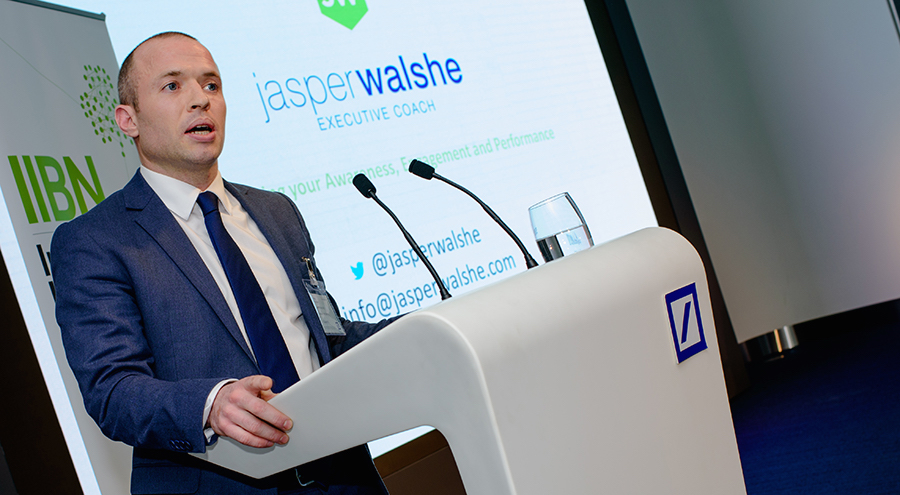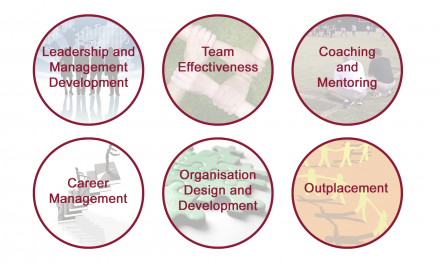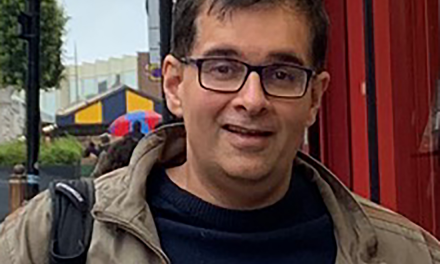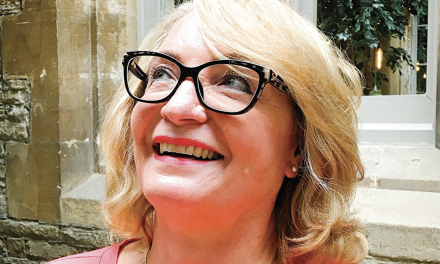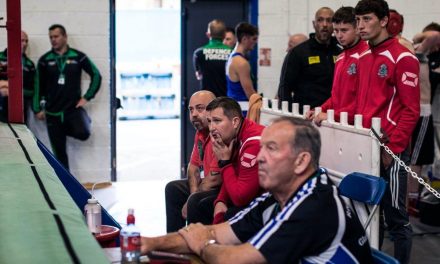Hello everyone and welcome to a special edition of Up Close & Personal. What’s so special about it I hear you shout. . . Well, it’s special for 2 reasons. Firstly, I’m joined by my fellow Renegade and our Founder, Dave Dean, which may not be hugely unusual, although I do normally do these interviews alone. What is really special is me and Dave have jumped on a plane and taken a short trip to the beautiful Emerald Isle and we’re sat in the fantastic city of Dublin. So, before I introduce our special guest, I should say hello to Dave. How are you mate?
Dave Dean: I’m doing very well thank you Steve. Good to be here.
Steve Matthews: What a fantastic setting mate.
Dave Dean: It is a beautiful setting.
SM: It is, although we’re in the bowels of a hotel to get some peace and quiet. So, Dave, onto our guest and the reason why we took our little trip across the Irish Sea. As our readers will know, we always try to get out and see our members in their natural habitat. I know I make it sound like a BBC wildlife documentary, while the guy we’ve come to see today is a fantastic member of Renegades, a stand-up coach and mentor in his own right, who specialises in the financial sector but not exclusively. Born in Dublin, he spent a very happy childhood here before seeking out the bright lights of London where he was one of those people, we love to bash Dave, a banker. After several years of filling his wallet but emptying his soul, he found his true calling for helping people within that sector find meaning and clarity in their lives. He has most recently delivered a highly acclaimed programme sponsored by the Diversity and Inclusion Council within the UBS Bank, based around his TRIPS Programme. Some of this he did himself but also with his team of affiliate coaches in the UK, and here in Ireland. I was lucky enough to have him join the Oak Mastermind Group I lead back in June and it’s been a pleasure ever since. He’s very recently moved back to his home town here in Dublin, and now lives in beautiful spot on the outskirts overlooking the sea with his beautiful wife Ciara and two children that are big fans of mine, Edie and Nico. Ladies and gentlemen, it’s my pleasure to introduce the Duke of Dublin, Mr Jasper Walshe. . . How’s that for a build-up Jasper?
Jasper Walshe: That’s great except for the Duke, because I ain’t no royalist.
SM: Well, we had to put something in there. What could we put instead of Duke? I don’t know, it has to be a ‘D’ to start with. . . And we’ve got Guinness I hasten to add.
DD: It’s my first pint of Guinness in Dublin for about 20 years. I have had quite a few in Cork, but we won’t go into that.
SM: So, how’s you Jasper?
JW: I’m great thanks. . . Fantastic! Welcome to Dublin.
SM: Thank you for having us here. Tell us all about it Jasper, where did it all begin for you. Why did you come from Dublin to London, what was the drive? Tell us a little bit about you and where it started.
JW: I had a very happy childhood here in Dublin, went to University in Dublin. I was the youngest in my family by 8 years, so I was definitely a surprise let’s just say, rather than maybe an accident. I had a great time in University because my parents were conscious that I was the youngest by a long shot, so they were very encouraging for me to have my mates around the whole time. I became very embedded in Dublin, after University I didn’t ever see myself leaving but after a five-year relationship broke up and then working here, a couple of stints travelling, I began to get itchy feet. It was a bit of, same old, same old, Ground Hog Day, so I moved to London in 2006 and helped the Irish bank that I was working with then, set up a private banking operation in London. That was in 2006 so they were the heady days about the Celtic Tiger and the overall global boom. It was a great time, it was exciting!
SM: Obviously Dublin’s a big city, London’s a big city but what’s the big difference between the 2 cities?
JW: Two main things. London is global and second of all, it’s never had a recession. So, despite the fact, what was going on everywhere around the world, you didn’t really notice. It’s a global city, it just feels very different. That been said, we were quite cliquey, myself and my Irish friends, we had a good little Irish network in London. So, it never felt like I was that far away from Dublin.
SM: I don’t know how you guys work in that environment. A country bumpkin like myself, I went to work in London for about 6 months and I found it so overpoweringly claustrophobic. You live by the sea now and I know you love that vista, and I live close to the sea, once you get that land lock thing going on with the high rise, oh my. . . I wrote a piece about it before, about getting on the Tube, when someone’s literally 3 inches away from your face and you just say, “morning”. If there was a sunroof, they’d want to get out, because they’d be thinking, “who’s this madman talking to me on the Tube”? I found it a really strange place to work.
JW: It’s funny, I loved the energy from day one, but I know my wife, Ciara took about 12 months to settle into London. She went over 2 years before me and we met over there. She struggled originally, and I know a lot of Irish people do, but I loved it from the get-go.
SM: Again, talking about the Irish contingency as you said there, you guys travel so well, there’s always great community. Last year I went to Singapore, my friend is living out there. Fantastic community of Irish guys, who stick together and look after each other. Always a great community of Irish where ever you go.
JW: It’s changed a lot in London from the time I arrived, to the time I left, so the troubles in the North were long finished by the time I went to London but the hangover from that was still, not obvious but there was still an undercurrent to it. Back in the 80’s there were still pubs with – ‘No blacks, no dogs, no Irish’ on the doors, so Irish weren’t always welcome in London. It used to be quite localised, tight Irish communities, but they were very working-class communities. There were guys paving roads and then meeting and congregating in the pub that evening and spending most of their earnings there and sending the rest home. So, it was a very lonely existence for a lot of Irish people and there are some great Irish charities set up now to take care of those generations. They’re called the lost generations over here. Listen, we didn’t experience that, I came from the right side of the tracks in Dublin, I had a very privileged upbringing, I’ve been very lucky my whole life in that regard. But since I moved to London, there was the Queen’s visit to Ireland and Mary McAleese’s first state visit to the UK as the Irish President. And they were ground breaking in terms of how the Irish viewed the British but mainly the English, and also how we were viewed over there. They were watershed moments.
SM: I think that’s really interesting. I love travel and I know you did a bit of travel, but where did you go? Did you just put a backpack on and go, the old stereotypical backing?
JW: I did a bit of that. I did a University degree and after my first year, myself and a bunch of mates went Interrailing around Europe and we covered most of Europe in that time. We just bought an Interrail ticket, which meant you just hop on and hop off trains. Then the following summer I was on the west coast of the States, the summer after that I was on the east coast, then after I finished my Masters I went to South East Asia for 3 months, Australia for a year and then New Zealand and Fiji on the way home. Worked for a few years in investment banking in my early 20’s, didn’t like that and so went off to South America for 6 months because a couple of my school mates had gone there, we all hooked up down there. That was 6 months of brilliant fun in South America. . .
To listen to full article… Go to your Travectio account

